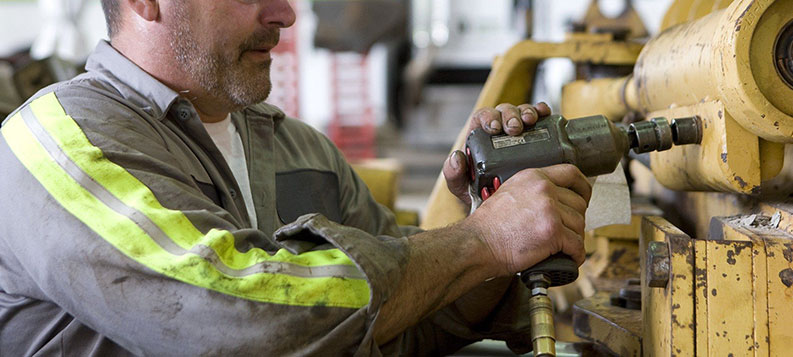
In the heavy equipment industry, local support is essential to distribution and customer retention. Individual pieces of equipment are often single-point job-critical items. Good equipment and responsive support can make a project profitable; downtime and outages can ruin customer relationships and destroy the bottom line. MacAllister, Indiana’s leading heavy equipment supplier, knows its customers depend on its instant response and a solid network among its locations, suppliers, and service providers.
MacAllister was expanding quickly in its home state of Indiana, but that growth had stretched the IT infrastructure in its downtown Indianapolis headquarters. MacAllister’s existing center did not have what the company required. Legacy systems lacked adequate power and fire protection, security, and environmental protection from natural disasters such as tornadoes, or man-made failures, such as a loss of air conditioning.
Brute force solutions like simply expanding and upgrading the facility for communications was difficult, because it is located in an older area of Indianapolis where the surrounding infrastructure made communications carrier access difficult. MacAllister had only one fiber connection at headquarters, and it offered no redundancy. Garry Buechler, Director of IT at MacAllister, said, “We needed improved performance and capability for our multiple facilities.”
The existing system, adequate when new and less-flexible with each addition, was not yet a choke point, but its vulnerabilities were more apparent every day. Several solutions were considered, but it became obvious that piecemeal solutions would not work long-term. A flexible, expandable solution was needed. Allowing for unanticipated opportunities was another consideration: No matter what was designed for tomorrow, it could not become a stumbling block the year after tomorrow.
When IFN and MacAllister got together to assess present and future needs, several models were discussed. The final proposal addressed current needs and accommodated future growth. Then things moved quickly.
“Once we had the final IFN proposal, we were able to make a decision rather quickly,” Buechler said. “Adjustments to the proposal were fast, and most negotiation was done over email and the phone. IFN’s contracts for service weren’t complicated, and they are Indiana-based and easy to reach in the event a dispute should ever arise.”
MacAllister’s relationship with IFN didn’t end with the initial contract. “We have been live on the IFN network since mid-2012,” Buechler said. “Since our initial Indiana project with IFN, MacAllister expanded into Michigan, with two acquisitions in that state. Connectivity is through the IFN data center.”
Buechler noted that even when IFN doesn’t cover a specific area, IFN is helpful. “We learned that renegotiating agreements for additional requirements was surprisingly easy,” Buechler said. “Where IFN can’t provide the services we are after, they have been very good about providing good alternative sources to work with.”
As MacAllister continues to grow, it can expand with a known partner that is easy to deal with and understands – and delivers on – MacAllister’s needs.
“It has been great to work with a local company that provides a fairly priced service for their colocation facility and for fiber network services for connectivity,” said Buechler. “IFN is not our sole vendor, but using IFN has enabled us to design or redesign our network in Indiana and Michigan. It also provides an alternate source to leverage other vendors’ pricing for fiber services.”
Most telling, MacAllister’s Indianapolis facility has gone from one which lacked adequate power and fire protection, security, and protection from environmental disasters, to a disaster recovery site.